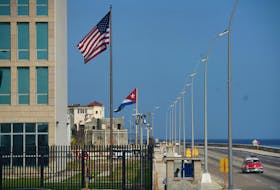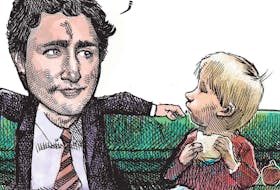It’s a chaotic world order, with too little commitment to peace, says the United Nations Secretary-General. The UN Security Council, mandated to prevent and remove threats to peace through effective collective measures, was surely meant for volatile times like these.
But, as my own organization reported last year, “since 2011, the Security Council and the broader international community have been unable to prevent the onset of, and in some cases escalation of, intractable conflicts in the Central African Republic, Libya, Mali, South Sudan, Syria, Ukraine and Yemen.”
It also failed to stop an alleged genocide, and stayed mute on several potential threats to international peace and security, despite holding a record 282 public meetings, and adopting 61 resolutions, in 2017.
There has been no Third World War, but the Council remains incapable of resolving the deadliest of conflicts when big power interests diverge. With hubristic sovereignty on the rise, a common core of multilateral principles is under threat.
Big powers are also failing to hold each other to account. To paraphrase the great jurist Louis Henkin, almost all nations observe almost all of their international obligations almost all of the time. But rule-breaking is a perk, and as the global balance of power shifts, more countries may flout the rules – for their own benefit, but also to prove that they’ve joined an elite club. Pushback will be limited.
The Council, now in its 73rd year, has had decades to show failure, but it has also shown an ability to adapt. After the fallow four-plus decades when it was largely blocked by the Cold War, it sprang to new tasks, particularly in peacekeeping. Even now, with tense dynamics among the five permanent members colouring many debates, some Council decisions and directions show promise.
In the past 18 months, UN peacekeeping operations completed their work in Liberia and Côte d’Ivoire, while the Haiti operation shrank its scope and footprint. In the past year, the Security Council united around a stronger DPRK sanctions regime, and tried to prod stagnant political negotiations in Cyprus, Lebanon and Western Sahara.
In September, the United States convened the Council’s first-ever discussion of corruption; in October, Bolivia focused on natural resources as a catalyst for conflict. In the same vein, Sweden led a close look at security risks emanating from climate change. Overly broad debates at times make the Council a platitudinous talk-shop, but they also sow the seeds of norms and good practice that can be carried over to peace operations. The protection of civilians during conflict, the roles of women in war and peace, and children affected by armed conflict, once frontier issues, now have normative frameworks.
The Council must ramp up its scrutiny of global threats, including an expanded notion of warfare. The Secretary General expects the next big war to start with a cyber-attack, but the Security Council has only glanced at cyber-security in informal, attendance-optional, “Arria-formula” meetings. The broader category of “hybrid warfare” has had similarly light attention. Some members resist discussion of human rights abuses, often harbingers of conflict.
Since a positive Security Council decision requires nine votes, the five permanent members cannot make things happen on their own. The 10 elected members increasingly co-ordinate their positions for greater influence. Elected members, due to their keenness, can help build confidence in the Council, be bolder about agenda items, insist on less scripted and more strategic discussions, and help make the body more than the sum of 15 sets of talking points.
As he took office in January 2017, Antonio Guterres, the UN’s ninth Secretary General, said that millions of people in crisis look to the Security Council to preserve global stability and protect them from harm. It is tempting to think that dramatic reforms could make the Council more effective.
But a veto-bearing permanent membership, put in place at the UN’s founding in 1945, kept powerful actors engaged. This is a feature, not a bug. There is scope for greater initiative by the UN General Assembly, and by the Secretary General himself, where the Council falls short. But, ultimately, preserving global stability requires the major powers to sign on to a principled multilateralism, and to rein themselves in, understanding that national interests are best secured through rules-based peace.
Karin Landgren is executive director of Security Council Report (@SCRtweets), an independent think-tank, and is a former UN undersecretary general.








